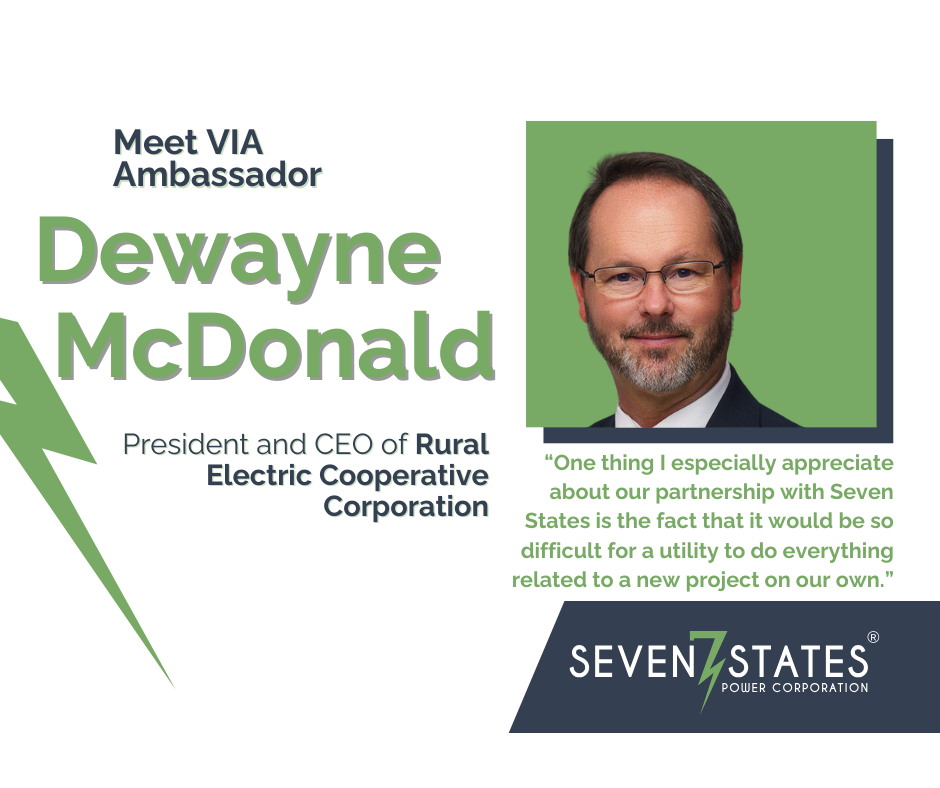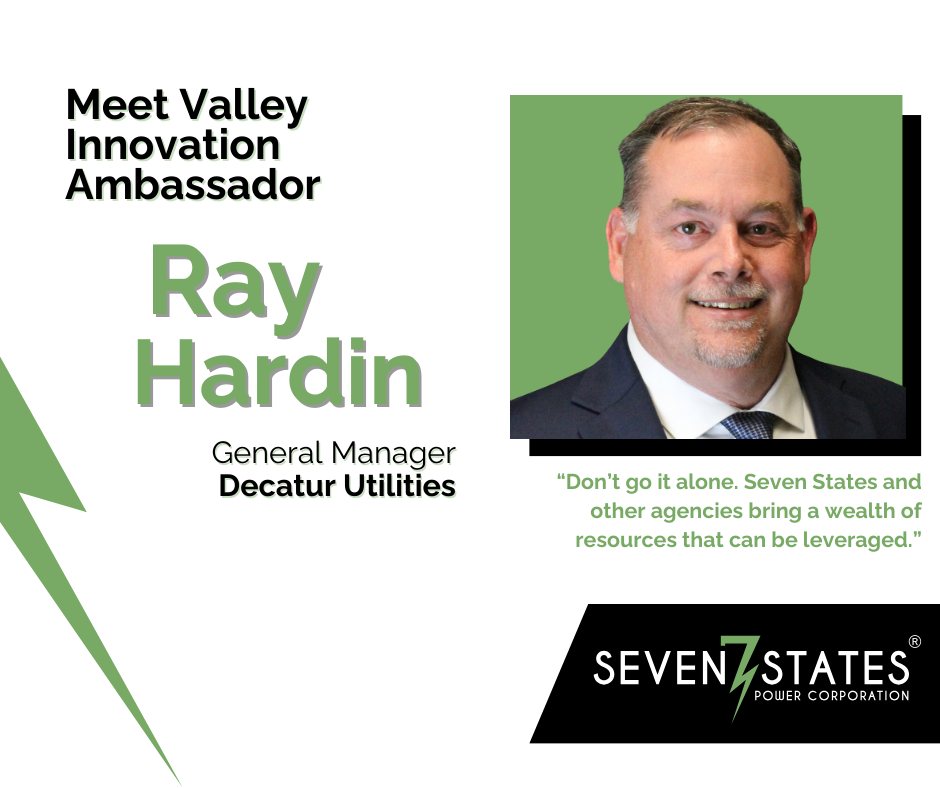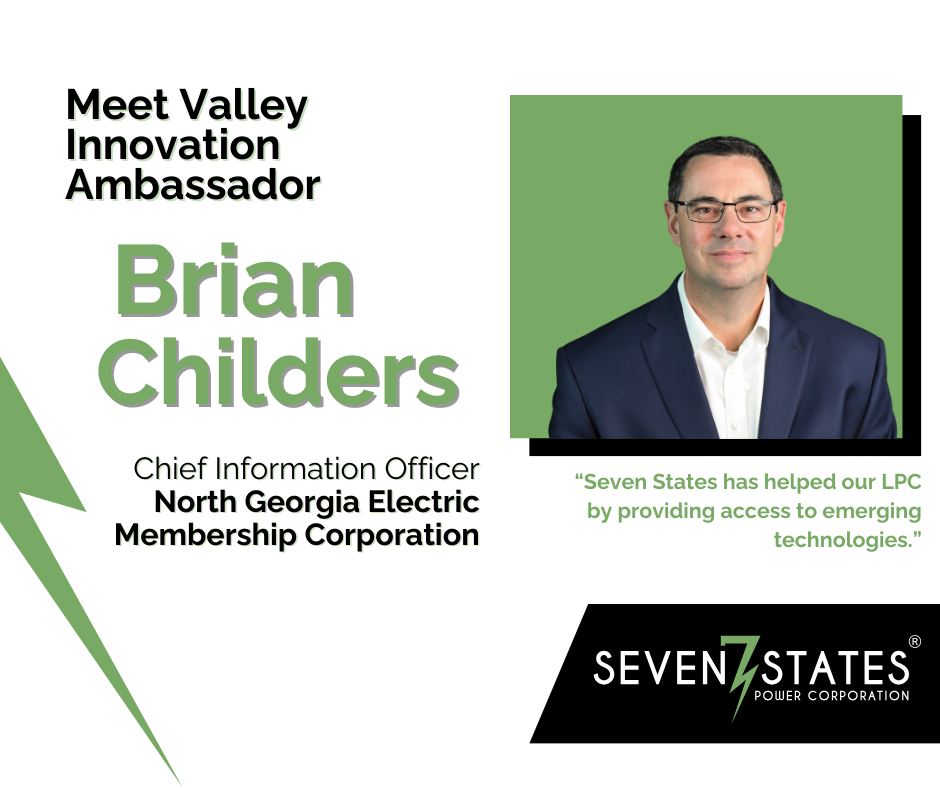
Dewayne McDonald knows how innovative partnerships and technology can prepare us for the future.
Since 2019, Dewayne has led Warren Rural Electric Cooperative Corporation as president and CEO with an emphasis on technological diversity and strategic partnerships. We asked him to share his experience with deploying past projects with Seven States:
“One thing I especially appreciate about our partnership with Seven States is the fact that it would be so difficult for a utility to do everything related to a new project on our own. Seven States has the expertise to offer everything from consulting to detailed back-end engineering, and they’re able to offer those services to all of their members, which makes it much more cost-effective. We’ve been really happy with the deployment of our level two charging, and now we’re about to roll out residential charging. All that work would have taken us longer to do on our own and it would’ve cost us more. Seven States brought everything to us and made it easy.”
To Dewayne, the most important thing he wants his members to know is that every decision is made with their needs in mind.
“I want our members to know that we don’t take being their trusted energy provider lightly, and not just when it comes to power, but in everything related to energy services as well. For us to be the trusted expert, we have to have partnerships with folks like Seven States to make sure that we’re providing the absolute best service. We’re not here just to keep their lights on — we’re here to meet their needs. And I think to have a growing community, we have to remember that we’re not just a power company, we’re here to create a better life for our members. ”
A growing community requires innovative thinking, and Dewayne knows that he needs to stay ahead of the curve.
“We’re constantly evaluating electrification trends, not only from the residential side but also from our commercial/industrial side and how the process is evolving in our industry. We have to ensure that we make decisions today that will enable us to support that demand through new technologies, such as battery storage. We’re exploring new technologies today to make sure the lights are on and reliable five years from now.”
With 32 years of industry experience, Dewayne knows that the members are the heartbeat of his co-op. He offered advice to general managers who might be wondering where to start when it comes to bringing innovation to their LPC.
“You have to listen to your members and customers. Look around at your community and ask yourself, ‘In what ways can I best serve my members and improve their quality of life?’ Once you do that, it helps you break out of the box and expand just beyond the power provider role. With your people in mind, the possibilities for serving them are endless.”
###




